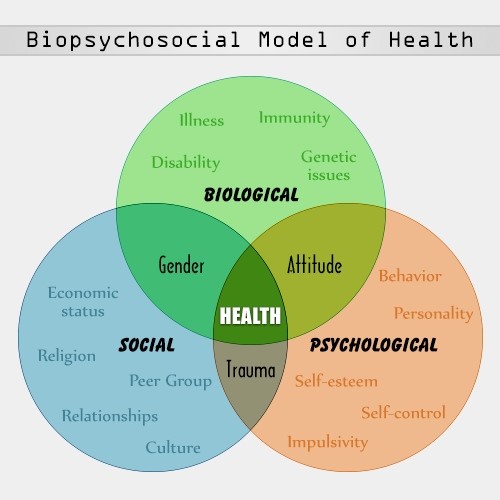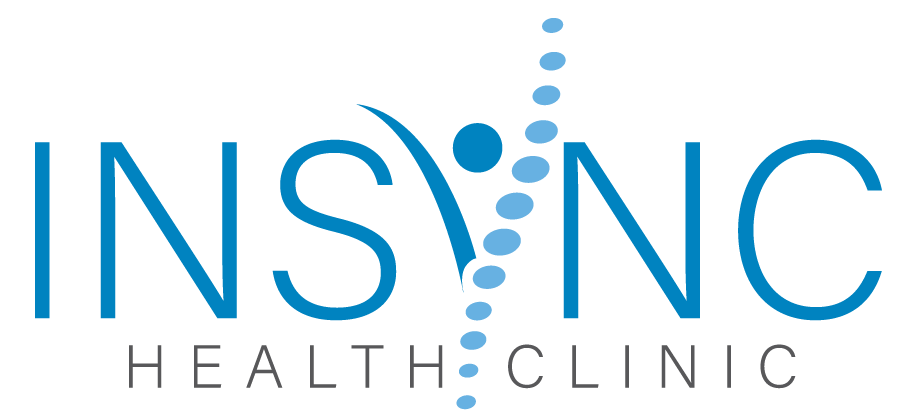
Biopsychosocial… a mouthful, yes. But we are going to break it down for you.
It is essential to understand what it is before we get into the nitty-gritty of physiotherapy treatment. It is a principle that we, at INSYNC Physiotherapy and SOLE-LUTION Podiatry, believe in to help with your pain, whatever pain it is.
Biopsychosocial is broken down into BIO – PSYCHO – SOCIAL.
Bio-: meaning your body and its structures. The theory behind it is that if your nociceptive (pain) nerve endings detect painful stimuli (eg. structure damage, heat, direct trauma), they will send pain signal to the brain to tell you that something is wrong. Pain is an essential part of your life because it tells you if something is wrong in your body so you can do something about it. But when pain becomes chronic (>6 weeks), it becomes just a bother. However, the theory above does not always apply. A study by Hofman et al in 2012 involving 5000 knee X-rays showed that 25% of those who had severe knee osteoarthritis did NOT report pain. Also, a study by Kanayama et al in 2009 showed that 35% of participants with no lower back pain had a herniated disc (disc bulge). So, sometimes structural changes (or there-lack-of) do not correlate with pain.
That brings us to PSYCHO-SOCIAL factors of pain.
Psycho-: meaning your mental health, level of stress or anxiety. When you are feeling down, anxious or just under a lot of stress, it changes your attentional behaviour. You might become pain-focused and be starting to have an exaggerated negative perception toward actual pain. We call it catastrophication. Next thing you know, you are trying to avoid doing things or avoid going to work. This behaviour can be altered by changing your focus toward things that you can and should actually do for your pain. Most of the time that involves doing your exercise program and distract yourself from thinking about your pain (eg. do things that you love or watching silly youtube videos perhaps?).
Social-: meaning your social life (eg. family, friends, work, cultural/religious beliefs, physical activity). People close to you might have different pain perceptions that can affect yours. Work might give you anxiety or stress. Your level of physical activity can affect pain in both ways depending on what injuries you have. A balanced work-social life can help with improving your mood, and surrounding yourself among positive thinking people might also be helpful. Additionally, instead of taking some time off work, switching to light duties at work would be a good idea. The more time you have to yourself doing nothing, the more you will be focused on your pain.
Sir William Osler once said, “The good physician treats the disease; the great physician treats the patient who has the disease.”
We, at INSYNC Physiotherapy and SOLE-LUTION Podiatry, put emphasis on the biopsychosocial model of patient management to treat patients as a whole to achieve the best possible outcome for your long-term benefits.
We have a good number of chronic pain patients that come to the clinic and mostly they present with lower back, neck or shoulder pain. We like to know what patients do for work or what their working environment is like so we can decide whether they need adjustments in terms of posture, desk/chair positions, computer screen height, or work hours. We look at their pain perceptions in order to figure out if we have to have a chat regarding pain education first before starting a treatment program.
Do you think any of the things discussed above apply to you? Come in and have a chat with us regarding your pain. We’d love to help you.
Call us at (02) 7226 3432 OR book online here for your assessment and treatment.

